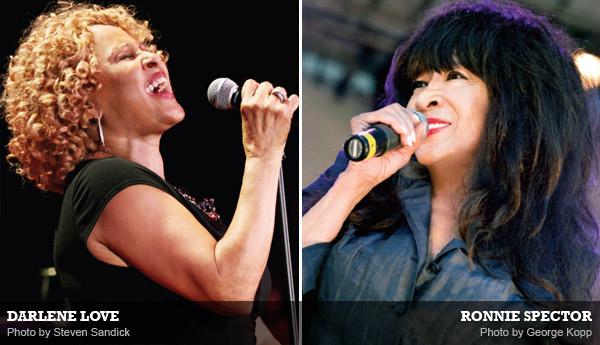
Darlene Love
A minister’s daughter, Darlene Love (born Darlene Wright, July 26, 1941 in Hawthorne, CA) grew up singing gospel. Love joined her first group, the Blossoms, as a teenager and sang backup on many successful recordings—including Bobby “Boris” Pickett’s 1962 hit, “Monster Mash.” That same year, Love and the Blossoms came to the attention of a local producer named Phil Spector, who suggested she change her name, and Love’s career changed forever.
Spector was in a tight spot when songwriter Gene Pitney came to him with “He’s a Rebel.” Spector smelled a hit, but his group,
the Crystals, couldn’t make it to Los Angeles in time to record it before Vikki Carr released her version, so Spector recorded it with Love singing lead and released it under the Crystals’ name. After the song went to Number One, Love quickly recorded a string of hits for Spector, including “Zip-a-Dee-Doo-Dah” and “Christmas (Baby Please Come Home).”
Until she left the Blossoms in 1974, Love found continued success by backing up legends like Elvis Presley and Frank Sinatra, but rarely with her own name in the spotlight. By the ’80s, Love, who had backed up Dionne Warwick and many others, began getting much-deserved recognition. In addition to solo performances in Los Angeles and New York, she began starring in the Tony-nominated jukebox musical Leader of the Pack in 1984, celebrating the music she’d helped popularize 20 years earlier. In 1988, she released her first solo album, Paint Another Picture.
At the same time, Love had taken up acting, appearing in movies like 1987’s Lethal Weapon and Broadway productions of Grease and Hairspray. In recent years, Love has released several anthology albums, was inducted into the Rock and Roll Hall of Fame in 2011 as a solo artist, saw the rerelease of her 1998 autobiography (My Name is Love) and was the subject of 20 Feet from Stardom (2013), a documentary profiling one-time backup singers who, like Love, ended up stealing the show.
Taking a break only for her holiday tradition of singing on David Letterman’s show, Love is currently touring. “I have been on bus tours with Tom Jones and Cher, and I never thought, all these years later, that I myself would be putting on a bus tour,” she said. Love’s set includes her own hits, covers like “Lean on Me” and some gospel songs. “I sing ‘Marvelous,’ about what God has done for you over the years, and I’m bowing, and when I look up, everybody’s standing, with teary 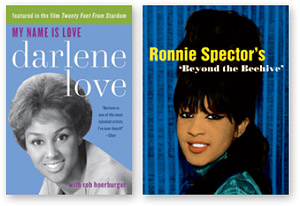 eyes,” she said. “That’s what it’s all about for me. It’s not just fun and perks. My whole vision in life is to touch people’s hearts while performing.”
eyes,” she said. “That’s what it’s all about for me. It’s not just fun and perks. My whole vision in life is to touch people’s hearts while performing.”
Ronnie Spector
Born Veronica Yvette Bennett in New York, NY on August 10, 1943, Ronnie, her sister, Estelle Bennett, and their cousin, Nedra Talley, formed the Ronettes as teens, and quickly grabbed attention in the early ’60s New York City scene. They truly took off when they hooked up with producer Phil Spector in March of 1963.
Success didn’t come immediately, however. Phil refused to release the Ronettes’ first recording, then gave credit for their next four recordings to the Crystals. In July, the Ronettes recorded “Be My Baby” and reshaped their career—and pop music—forever. The overwhelming success of “Be My Baby” carried into 1964 as the Ronettes hit again with songs like “Walking in the Rain.” “We were close with the Beatles,” Ronnie said. “My sister was going out with George. John Lennon took me out a few times. The Rolling Stones were our opening act.” The group’s popularity started waning by 1965, largely due to Phil’s mismanagement, though they toured America with the Beatles in 1966. In early 1967, the group disbanded.
Before that, however, a romance blossomed between Ronnie and Phil. “My mom was always there; then I got married,” she recalled. “I was sheltered.” The two married in 1968, but things quickly soured, and Ronnie’s musical career was put on hold. After her escape from Phil’s Los Angeles mansion in 1972, Ronnie found a new generation of rock heavyweights, including Billy Joel and Bruce Springsteen, who were eager to work with her. In 1980, she released her first solo album, Siren, and hit the singles chart again in 1986. She later published an autobiography and sporadically released subsequent solo albums, including Last of the Rock Stars (2006), featuring an impressive list of contributors, including Keith Richards. The Ronettes were inducted into the Rock and Roll Hall of Fame in 2007.
Today, Ronnie continues to perform her own Beyond the Beehive show. “I would like people to know that women are more powerful than ever before. My show will make women understand that you don’t have to stay in a bad relationship.” The band, featuring Springsteen’s Seeger Sessions alumnus Jeremy Chatzky and veteran arranger and accompanist Dave Keyes, backs up the part-music/part-memoir show, which earns standing ovations. According to Ronnie, “It’s a good time for me.”
![]()
What are you listening to right now?
Darlene Love: In my car, if I am not listening to songs I have to learn—which is most of the time—I am listening to gospel on satellite. Most music that’s going on today does not inspire me. The new gospel is amazing: the Hawkins Family, Hezekiah Walker—all of those.
Ronnie Spector: I mostly listen to the radio in the car. We have Sirius, so we can get the ’60s and ’70s. I’m not so crazy about much of the stuff these days. I love that record “Stay,” by Rihanna. I do listen to Bruno Mars—“When I Was Your Man” is my favorite song of anything he’s ever done. If I’m in my car and it comes on, I pull over to the side because I don’t want to get in an accident.
What was the first record you ever bought?
DL: Rock ‘n’ roll music or rhythm and blues music was not allowed in my house. I was a pastor’s daughter, and they called it “the devil’s music.” I would listen to music at my friend’s house, but I was not allowed to buy it until almost grown.
RS: Frankie Lymon and the Teenagers’ “Why Do Fools Fall in Love.” At 13, I saved up all my allowance to get that record.
What was the first instrument you ever played?
DL: My mother started me and my sister out taking piano lessons, but they say if you don’t want to do it, then don’t do it. We sang in the choir in Texas, but when I was 14 or 15 years old, my father didn’t have a church, so he let us join St. Paul Baptist Church, which had a huge youth choir, and that’s when I realized, Wow! I can sing!
RS: My instrument is my voice, and I started to sing when I was about five years old. My mother had seven brothers and seven sisters; I had 23 first cousins, and they all played music. We’d go to my grandmother’s every Sunday, and I’d jump up on a coffee table and sing for my family. They would applaud me. I went to guitar lessons after I became “famous” and took about two lessons, and it was boring. I learned one song on the piano, and that’s all I know. I’ve never been an instrumental person.
How did you become a vocalist?
DL: One of the choir members was getting married, and she asked me to sing at her wedding. The Blossoms were in the wedding party, and they asked me to audition. Our manager was a vocal coach and an arranger, so we learned how to sing a four-part harmony, and we started doing background sessions. It was a little at a time, so it wasn’t overwhelming to my parents.
When I recorded with Phil Spector in 1962, I was 18 or 19 years old. My parents figured they raised me as best they could. My father let us get away with more things than other pastor’s kids did; for example, we were allowed to go to movies.
RS: I come from very humble beginnings in Spanish Harlem, so we didn’t have money to take lessons. At the beginning, I didn’t know if Frankie Lymon was a boy or girl, but I would listen to his records and slowly get his diction.
Who would you like to write with that you haven’t?
DL: I would love to write with Mariah Carey. I love most of the things she does.
RS: I’d write with Paul McCartney today. Back in the ’60s, if I gave them lyrics, the next day I’d go into the studio, and something I said was on my music sheet. We didn’t care because our records were hits, and once my records were on the radio, people would come and see me, and that’s how I would get paid. I didn’t know you get way more money writing and publishing than just recording—I thought recording artists were the stars. What did I know? I was a teenager.
What musician influenced you most?
DL: Singer Marian Anderson was my idol coming up. There was a lot of prejudice at the time; she couldn’t go to certain places to work, but she was bound and determined. She had an unbelievable voice and didn’t need a whole lot of instrumentation—she had it all within, but they didn’t know what to do with her. I look at her life and I would love to channel my life after hers.
I really had great examples before I started out as a solo artist because I worked with some of the greatest singers and entertainers. As a backup singer, I watched Dionne Warwick for 10 years; I watched her when she got on the stage and watched how she got ready to go on stage. She used to tell me all the time, “If you are going to take something from somebody, take the good part.” You don’t know what it really takes to be the star of the show. You have to pay people, to decide where you go to work, then pick your singers and pick your musicians. When you first start out, you go, Hey, I didn’t know how good I had it. I just showed up when they asked me to.
RS: Frankie Lymon, that’s it. Boom!… I love Paul McCartney; I love Jimi Hendrix.
When did you realize you could have a career in music?
DL: The song that made me want to be a solo artist was “A Change is Gonna Come.” That’s when I went, OK, this is possible. Sam Cooke’s father was a preacher, and we had the same kind of lifestyle growing up. Church people didn’t want you to turn over because they figured you were selling yourself out. Sam left the group and started singing solo, and those words—“Change is gonna come”—you can turn your world and everybody else’s world around with that one song.
RS: I knew it from a very young age, five or six years old, I said, “This is what I want to do for the rest of my life. I want that applause to stay with me.”
We did the Brooklyn Fox with Murray the K and were only known as his “dancing girls,” and when we’d come out, the audience would go crazy. I did all the choreography with the Ronettes. My aunt made some of our outfits at the beginning of our career. We wore very tight dresses because all the other girl groups were wearing these wide dresses, flared out. Everything was very simple; we just had slits up the side. When we walk on stage, we walk on stage. We were bad girls.
We had a manager who got us into Colpix Records, but they weren’t writing the right kind of songs for us; the records sank like a rock. My sister heard about how Phil Spector was making girl groups famous, so she called his office, and he actually answered the phone; he asked us to meet him the following night at Mira Sound Studios for an audition. He fell in love with my voice, and me too, I guess. He said, “That’s the voice I’ve been looking for.” My first impression of him was amazing. When I came home, I got every record he had made hits, “Da Doo Ron Ron” and all that. I said, Wow, if he could record us, it would be great.
When did you stop carrying your own bags?
DL: Actually, that just started happening the last couple of years, because when we first started out, it was me and my husband, and you take your sister with you or your best friend with you to help, but all I really do now is show up with my purse.
It’s hard to let that kind of power go, because I feel like nobody can do it as good as I can. It’s not so much one of those, Hey you! Do this; it’s just that you don’t have to remember to bring this or that; it is a great relief to just show up. I was always the first one at rehearsal, but they really don’t need me when they start. Now, if rehearsal is at 1:00, I get there at 1:15, but I have a hard time doing that.
RS: On a trip to England. We were shocked that the Shirelles had a valet. When we traveled, we never had a valet and an entourage like they have today; we just had our moms, and that was perfect.
Everything for the Ronettes came and went like Bam! ’63 to ’66, and out. In ’67, I moved in with my ex, and in ’68, I was married. Then I was going through legal stuff with him for the last 45 years.
Who would you like in your rock ‘n’ roll heaven band?
DL: Luther Vandross, because he was unbelievable to work for—he started out as a background singer too. I would pick Bruce Springsteen, Bette Midler, Aretha Franklin and Sam Cooke because of their work ethic. Billy Preston was an unbelievable organ player. The Beatles weren’t the greatest singers, but they also played instruments. I would have a choir, honey! We would be heavenly voices.
RS: I would love Jimi Hendrix on guitar; Paul McCartney, because he’s such a great writer; Bruno Mars, because I love his voice. I’d love Frankie Lymon; he could sing my background now, and I’ll sing lead.
What’s your desert island album?
DL: I would listen to Ray Charles singing country and western music. The songs are fantastic—they tell wonderful stories. Ray Charles’ singing was mind-blowing, and he had a white choir singing behind him—that was even more amazing. Give me a Ray Charles CD and hear him sing “Born to Lose.”
RS: Bruno Mars, because he’s from Hawaii, and so I think of a desert island: palms and coconut drinks. How about listening to one CD for the rest of your life? I can’t answer that. I can only think of Bruno Mars under the coconut tree.


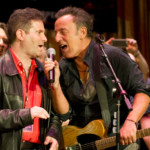
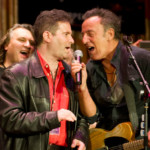
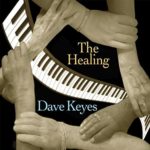
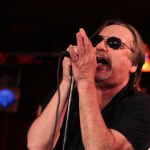

[…] performances every Thursday for much of the summer. In addition to Butler, performers included Darlene Love, the Ohio Players and Bobby Rush. For Elmore’s photos of Henry Butler – Steven […]
[…] in the heart of New York City’s famed Times Square and received a special treat- a short set by Darlene Love- which turned this into a very special night of great […]
[…] Darlene Love & Ronnie Spector: Girls Rule – I do listen to Bruno Mars … young age, five or six years old, I said, “This is what I want to do for the rest of my life. I want that applause to stay with me.” We did the Brooklyn Fox with Murray the K and were only known as his “dancing girls … […]